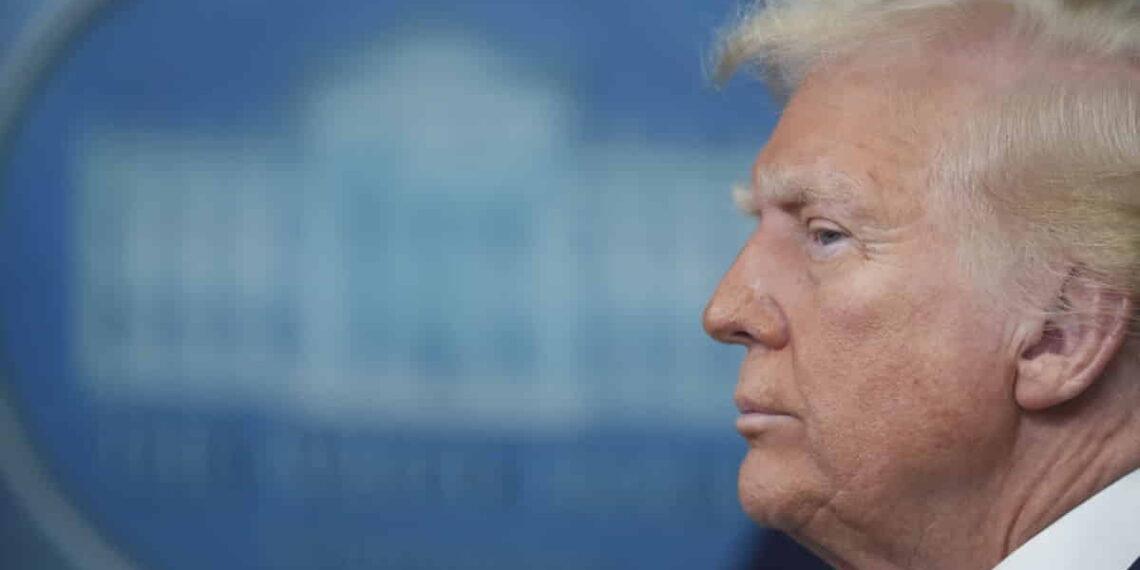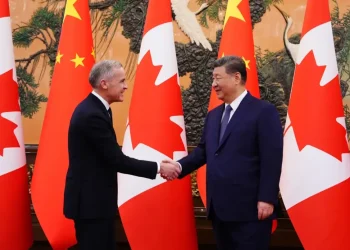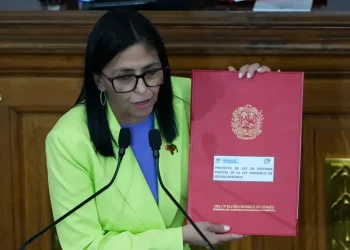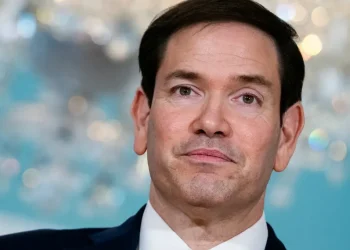Trump Warns of ‘Some Pain’ from Tariffs, Threatens More Import Taxes
President Donald Trump has acknowledged that Americans may experience “some pain” from his newly imposed tariffs, as tensions rise between the U.S. and major trading partners, including Canada, Mexico, and China. Over the weekend, Trump signed sweeping trade penalties at his Florida resort, sparking panic, anger, and uncertainty in global markets.
Trump’s Justification: Trade Imbalances & Economic Emergency
Speaking to reporters after returning from Florida, Trump doubled down on his trade policies, stating that steeper tariffs on the European Union and the United Kingdom are also under consideration. He justified his actions by citing trade imbalances, illegal immigration, and the smuggling of fentanyl, though his administration has not specified what improvements would be needed to lift the tariffs.
“Will there be some pain? Yes, maybe (and maybe not!),” Trump wrote on social media. “But we will make America great again, and it will all be worth the price that must be paid.”
Despite concerns about inflation, Trump insisted that the U.S. has been exploited by foreign countries for decades and that these tariffs are a necessary step.
Tariffs & Retaliation: Breakdown of the Trade War
Trump’s tariffs, set to take effect Tuesday, have already triggered retaliatory measures:
U.S. Tariffs
- Canada: 25% tariffs on various goods, including a 10% tax on oil, natural gas, and electricity.
- Mexico: Tariffs on multiple products in response to U.S. trade penalties.
- China: Expected to file a lawsuit with the World Trade Organization (WTO) to challenge the tariffs.
Canadian Response
Canadian officials have expressed confusion and frustration over Trump’s decision. Ambassador Kirsten Hillman told ABC News that Canada sees itself as “your closest friend, your ally” and does not understand why the U.S. is escalating trade tensions.
Prime Minister Justin Trudeau has urged Canadians to buy local, warning that Trump’s tariffs will harm both nations. Canada’s countermeasures include:
- $105 billion in U.S. goods taxed at 25%
- Immediate tariffs on alcohol, cosmetics, and paper products
- Future tariffs on vehicles, steel, aluminum, dairy, meat, and agricultural goods
Trump: “Canada would cease to exist without its trade surplus with the U.S.”
Trump took to Truth Social, claiming that without its economic relationship with the U.S., “Canada ceases to exist as a viable country.” He even suggested that Canada should become the 51st U.S. state, arguing that it would benefit from lower taxes and better military protection.
Mexico & China React to Tariffs
Mexican President Claudia Sheinbaum announced new tariffs in response, while also urging the U.S. to focus on its own drug crisis rather than imposing economic penalties. She and Trudeau discussed strengthening bilateral ties in response to Trump’s trade policies.
China, meanwhile, has pledged to defend its economic interests and will likely pursue a legal battle through the WTO.
Economic Fallout: Inflation & U.S. Households at Risk
Trump’s aggressive tariff strategy could have severe domestic consequences, including higher consumer prices and economic instability. Critics argue that the tariffs may contradict his campaign promises of reducing inflation.
According to an analysis by Yale’s Budget Lab, if the tariffs remain in place:
- The average U.S. household would lose $1,245 in income this year.
- The U.S. economy could suffer a $1.4 trillion tax burden over the next decade.
Goldman Sachs warned in a Sunday report that the tariffs could be economically damaging but noted that a last-minute compromise cannot be ruled out.
Political Fallout: Could Tariffs Backfire on Trump?
Trump built his political brand on attacking inflation under President Joe Biden, citing supply chain disruptions, government spending, and global conflicts. However, his own tariff policies could now contribute to rising costs, raising political risks for his re-election campaign.
Larry Summers, former U.S. Treasury Secretary:
“These tariffs are a self-inflicted wound to the American economy. Bullying is not a winning strategy in international relations.”
Summers also warned that Trump’s trade war could push U.S. allies closer to China, strengthening President Xi Jinping’s global influence.
What Happens Next?
While Trump has not provided a clear timeline for additional tariffs on the EU, he confirmed they will be implemented “pretty soon.”
With international backlash growing and economic pressure mounting, the coming weeks will determine whether Trump doubles down on his tariff war—or if political and economic realities force him to reconsider.
Will the tariffs be temporary? Or is the U.S. entering a prolonged trade war? Only time will tell.
This article was rewritten by JournosNews.com based on verified reporting from trusted sources. The content has been independently reviewed, fact-checked, and edited for accuracy, neutrality, tone, and global readability in accordance with Google News and AdSense standards.
All opinions, quotes, or statements from contributors, experts, or sourced organizations do not necessarily reflect the views of JournosNews.com. JournosNews.com maintains full editorial independence from any external funders, sponsors, or organizations.
Stay informed with JournosNews.com — your trusted source for verified global reporting and in-depth analysis. Follow us on Google News, BlueSky, and X for real-time updates.














